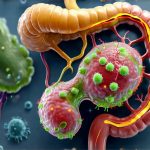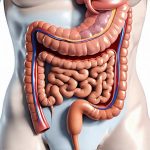The human gut is teeming with trillions of microorganisms – bacteria, archaea, fungi, viruses – collectively known as the gut microbiota. This complex ecosystem plays a crucial role in our overall health, impacting digestion, immunity, mental wellbeing, and even chronic disease risk. Disruptions to this delicate balance, termed dysbiosis, have been linked to numerous conditions, prompting researchers to explore innovative ways to restore microbial harmony. One of the most promising, yet still evolving, approaches is fecal microbiota transplantation (FMT).
FMT involves transferring fecal matter, or stool, from a healthy donor into the recipient’s gastrointestinal tract. While seemingly unconventional, this process aims to repopulate the gut with beneficial microbes and re-establish a balanced microbial community. The concept isn’t new; historical accounts suggest rudimentary forms of FMT were practiced centuries ago in traditional medicine. However, modern understanding of the gut microbiome has propelled FMT from anecdotal treatment to a potentially powerful therapeutic tool, albeit one requiring careful consideration and research.
Understanding the Gut Microbiome
The human gut microbiome is incredibly diverse, with hundreds if not thousands of different microbial species coexisting within us. This diversity isn’t random; it’s shaped by factors like diet, genetics, age, geographic location, and antibiotic use. A healthy microbiome typically exhibits a rich variety of microorganisms, contributing to efficient digestion, nutrient absorption, protection against pathogens, and immune system development. Imbalances in this ecosystem can occur due to various stressors, leading to dysbiosis and potentially manifesting as health problems.
The Mechanics of FMT
FMT isn’t simply about transferring stool; it’s a carefully orchestrated process aimed at delivering viable microorganisms to the recipient’s gut. There are several methods for administration, including colonoscopy, enema, nasogastric tube, or even encapsulated fecal matter (oral pills). The choice of method depends on factors like the clinical situation and patient preference. Preparation protocols for both donor and recipient are crucial to minimize risks and maximize efficacy.
Donor Selection and Screening
The foundation of successful FMT lies in selecting a healthy donor. Stringent screening processes are employed to identify individuals with a stable, diverse microbiome and who are free from transmissible diseases. This involves extensive medical history review, blood tests for infectious agents (like HIV, hepatitis), stool analysis to characterize the microbial composition, and assessment of overall health. The goal is to ensure the donor’s microbiota won’t introduce harmful organisms or exacerbate existing conditions in the recipient. Donors are often selected based on similarity to the recipient when possible, aiming for a more compatible transfer.
Microbial Composition & Engraftment
FMT isn’t about transplanting specific bacterial strains; it’s about transferring an entire microbial ecosystem. The composition of the donor’s microbiome is analyzed to identify key beneficial species and assess overall diversity. However, predicting which microbes will successfully engraft in the recipient’s gut remains a complex challenge. Factors influencing engraftment include the recipient’s existing microbiome, immune status, dietary habits, and medication use. While some microbial species may establish long-term residency, others might be transient or fail to colonize altogether.
Long-Term Effects & Future Research
The long-term effects of FMT are still being investigated. Studies have shown that the transplanted microbiota can significantly alter the recipient’s gut microbial composition, leading to improvements in health outcomes for specific conditions. However, the durability of these changes and potential unintended consequences require further investigation. Ongoing research focuses on optimizing donor selection, refining administration methods, identifying biomarkers predicting response, and understanding the complex interactions between the transplanted microbes and the host immune system. This includes exploring personalized FMT approaches tailored to individual patient needs and microbiome profiles.


















